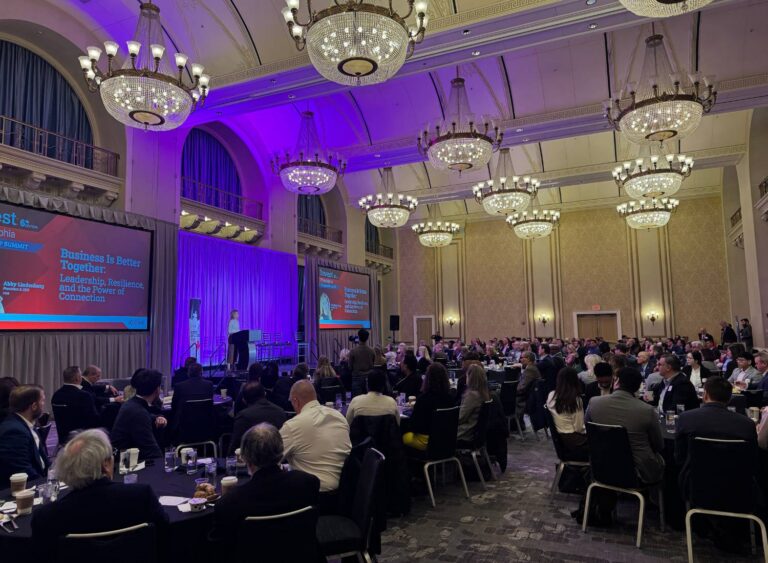Companies embrace AI in the workplace, new report finds
Writer: Eleana Teran
 June 2025 — As artificial intelligence becomes more embedded in day-to-day operations, companies across the country are increasingly encouraging employees to adopt the technology to streamline tasks, increase efficiency, and remain competitive. But the shift is also exposing deep generational divides and sparking concerns about job stability while impacting flexibility in an evolving workplace.
June 2025 — As artificial intelligence becomes more embedded in day-to-day operations, companies across the country are increasingly encouraging employees to adopt the technology to streamline tasks, increase efficiency, and remain competitive. But the shift is also exposing deep generational divides and sparking concerns about job stability while impacting flexibility in an evolving workplace.
More than half of U.S. employers are actively encouraging staff to use AI tools on the job, according to new survey data from Owl Labs, which examined responses from over 1,000 full-time knowledge workers across the country. The findings show that 56% of employers support AI use on the job, a significant increase from 2023, when only 44% of employers believed the technology could enhance their performance. A growing share of the workforce is leaning on AI to get the work done — 67% of companies report using it in the workplace, and nearly half say they rely on it either heavily or to some extent.
This shift is impacting every single industry. “Artificial intelligence is transforming industries, and we have already integrated AI into relevant courses,” said Cyrus Vatandoost, president and CEO at Nossi College of Art & Design, in an interview with Invest:. “Employers now ask graduates about their AI experience, and those unfamiliar with it are at a disadvantage. We ensure our students understand AI’s ethical use and can articulate their experience, making them more competitive in the job market.”
AI is now a routine part of the workday for many, especially when it comes to repetitive tasks. More than one in three (35%) employees report using it most often to manage schedules and calendars, 33% for data analysis, and 30% for writing tasks such as emails and reports. According to the survey, younger workers are more AI-reliant, as 70% of Gen Z and 59% of millennials say they depend on it at work, while another 36% use it occasionally for specific needs.
The adoption of AI tools is gaining traction across the board, with executives leveraging them to boost efficiency. Fifth Third Bank’s Tennessee Regional President David Briggs told Invest:, “I personally use Copilot at least once a day,” he said. “This technology is now ingrained in how we operate and improve efficiency.”
The regional momentum is also clear in Middle Tennessee. At MTSU, the inaugural Tech Vision Conference drew in students, faculty, and industry leaders exploring how AI is reshaping work and education. Local speakers emphasized AI’s role in improving productivity and creativity, not as a replacement, but as a tool to help people work smarter.
The state is also taking a broader look at the future of these tools through initiatives like AI Tennessee, an effort aimed at building a more connected and innovation-driven approach to AI adoption. The program brings together universities, industry leaders, and government agencies to align research, workforce training, and infrastructure around responsible and inclusive AI use.
Still, the growing use of AI is not without tension. A Pew Research Center survey found that more than 52% of employees feel worried about how AI could impact their jobs, while only 36% report feeling hopeful. Another 33% describe themselves as overwhelmed by the pace of AI adoption, and 29% feel excited.
Concerns range from job security to the pressure to reskill and the fear that human judgment may be sidelined by automated decision-making. Sentiment varies by age, education, and income. Younger employees are more likely to feel overwhelmed — 40% of those ages 18 to 29 report this, compared with 30% of older age groups. Awareness and optimism increase with education: 91% of workers with at least a bachelor’s degree are familiar with AI in the workplace and are more likely to feel hopeful (44%) and excited (38%). Among less-educated workers, those figures fall to 30% and 23%, respectively.
While many employers are growing more comfortable with AI use in the workplace, not all are moving at the same pace, fueling a rise in under-the-radar use. According to Ivanti’s 2023 Technology at Work report, 42% of office workers use genAI tools on the job, yet one in three keep that hidden from their employers, and 46% state that some or all of the AI tools they use are not provided by their employers. Whether it’s due to unclear rules or fear of being judged, many workers are choosing to keep their AI use quiet. Some treat it as a “secret weapon,” while others worry that leaning on AI could make them look less capable, or even replaceable.
For more information, please visit:
https://nossi.edu/
https://53.com/

WRITTEN BY












